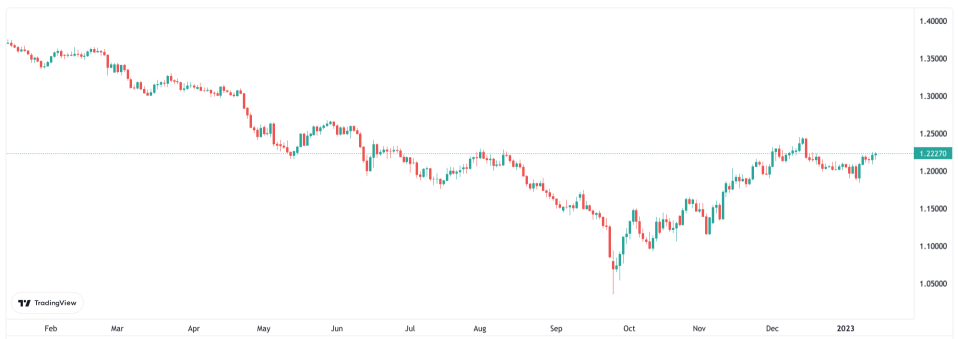What could a recession mean for the pound in 2023? City analysts have their say

The pound is on course for another tough year with the UK likely experiencing the worst recession of all major economies, analysts have told City A.M.
The risk of sterling tumbling to another record low against the US dollar, as it did last year, is slim, analysts think, mainly due to the low likelihood of MPs repeating Liz Truss’s reckless tax and spending policies.
However, the pound may fall as far as $1.1 in 2023, according to John Hardy, head of FX strategy at Saxo Bank, driven lower by a sharp fall in house prices weighing on the economy.
Britain’s economy is highly sensitive to house price movements. Falls typically cause spending slowdowns due to Brits’ wealth shrinking.
The OECD has predicted the UK economy will contract 0.4 per cent this year, the worst slump in the G7.
Hardy added a sustained aggressive rate hike campaign by the US Federal Reserve making dollar denominated assets more attractive will hit the pound.
“The darkest point for sterling will likely be reached at the point just before the Fed finally turns around and begins to provide liquidity again,” he added.
Pound/USD exchange rate over last year

Fed officials are expected to ease off the brakes toward the end of 2023 if the US economy tips into recession. Led by chair Jerome Powell, they lifted rates at the quickest pace since the 1980s in 2022.
“We can’t be very bullish on the pound, but equally most of the negative news has already been priced in,” Fawad Razaqzada, market analyst at City Index, said.
A shock 0.1 per cent rise in GDP in November, confirmed by the Office for National Statistics last week, raised hopes the economy is actually much stronger than first feared.
If the UK avoids a technical recession, the pound could swerve the depths analysts have warned about.
Rapidly falling energy prices will strengthen the UK’s finances, trimming the amount of money investors have to lend the country.
“The current account ought to improve from the trough of early last year,” analysts at Deutsche Bank said.
A narrower trade deficit helps a currency by shrinking its denominated debt supply on financial markets, meaning investors demand a lower discount to lend money.
Tumbling gas prices could give the government around £10bn to play with at the 15 March budget to support the economy, either through tax cuts or spending rises.
Either measure would blunt the sharpness of a recession and could support sterling.
The currency has kicked off 2023 reasonably well, strengthening over one per cent to buy $1.22.